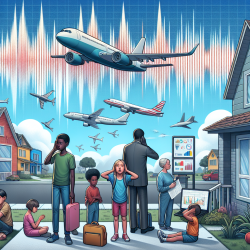Enhancing Practice through Community-Based Strategies: Lessons from The `Ohana Day Project
In the realm of healthcare, particularly when addressing underserved communities, the integration of culturally relevant strategies can significantly enhance outcomes. The `Ohana Day Project, a community initiative aimed at increasing cancer screening among Native Hawaiians, offers valuable insights for practitioners seeking to improve their skills and services.
Understanding the Context
Native Hawaiians face higher cancer mortality rates and lower screening rates compared to other ethnic groups in Hawaii. The `Ohana Day Project was designed to address these disparities by organizing a community celebration that incorporated cultural elements to attract and engage participants. This approach not only improved screening rates but also increased community involvement in healthcare systems.
Key Components of the `Ohana Day Project
- Community Engagement: The project involved a 1-day ho`olaule`a (community celebration) featuring Hawaiian physicians, culturally relevant education, and family-friendly activities.
- Culturally Tailored Materials: Educational materials were designed to resonate with Native Hawaiians, featuring Hawaiian faces and incorporating traditional values.
- Personalized Recruitment: Community health workers engaged with participants through personalized, culturally sensitive interactions.
- Follow-Up and Support: Participants received follow-up for abnormal screening results, with assistance in obtaining further care and insurance.
Implications for Practitioners
For practitioners, the success of the `Ohana Day Project underscores the importance of culturally tailored interventions. Here are a few strategies to consider:
- Incorporate Cultural Values: Understand and integrate the cultural values and practices of the communities you serve to make healthcare services more relatable and effective.
- Engage Community Members: Use community-based participatory research methods to involve community members in planning and implementing health interventions.
- Develop Relevant Materials: Create educational materials that reflect the cultural identity of the target population, which can increase engagement and understanding.
- Ensure Follow-Up: Establish robust follow-up mechanisms to support participants in accessing further care and maintaining engagement with healthcare services.
Encouraging Further Research
While the `Ohana Day Project provides a successful model, further research is needed to explore its applicability in other communities and healthcare contexts. Practitioners are encouraged to delve deeper into community-based strategies and cultural competence to enhance their practice and outcomes.
To read the original research paper, please follow this link: The `Ohana Day Project: A Community Approach to Increasing Cancer Screening.










